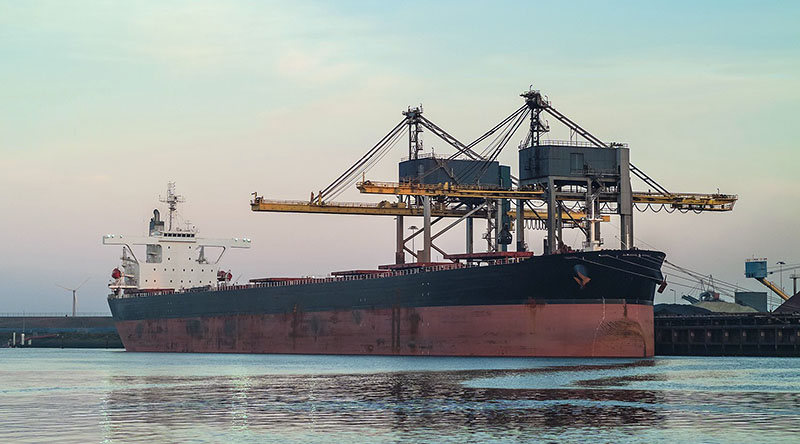As a result of the war in Ukraine the Port of Rotterdam has seen a significant shift in cargo operations with 2022 from container handling to energy related shipments. The release by the Port of Rotterdam of their financial results for 2022 shows that there has been a significant increase in the number of LNG shipments from the United States, the transhipment of coal to Germany and the number of tanker vessels from the Middle East.
The increase in LNG shipments was particularly noticeable with volumes increasing by around 60%. The shift away from Russia as a source of oil has seen the number of ULCC’s arriving in Rotterdam from around the world increase significantly with around 6 times as many arrivals when compared to 2021. At the same time Rotterdam saw an increase of around 18% in the volume of coal transhipments.
Environmental challenges
This shift to energy related shipments poses a challenge to the port’s efforts to reduce emissions and is having a knock on effect on planned construction of various projects. An example is the suspension of the construction of the CO2 storage facility by order of the Counsel of State due to the nitrogen emissions and according to the port authorities up to 30 other projects aimed at achieving the ports environment and sustainability goals may be at risk.
Cargo volumes
Whereas the events in Ukraine have had a positive short term impact on cargo volumes within the port, the shift may force the port to make difficult strategic decisions going forward in order to comply with Dutch and European environmental law and regulations. This in turn may require the port to limit the number of shipments or volumes of particular cargoes in order to allow other projects to proceed, alternatively, a long term trend towards energy related cargoes may limit the ports ability to handle other cargoes, if the port is not allowed to expand capacity.
Forecast for 2023
For 2023 the port expects that the situation will stabilize with a reduction in cargo volumes partly due to the stagnation of the European markets although the increase in energy related shipments is expected to continue for the foreseeable future. The short-term impact for shipowners, particularly in the case of large tanker vessels, is the pressure on cargo handling and storage capacity as well as the logistical challenges of transhipment into Europe. This may result in delays and increases the risk of quality issues or problems with the import or export formalities. In the long term the port is going to have to make a number of important strategic decisions on how it implements its environmental and sustainability goals whilst at the same time remaining the strategic centre of shipping in Europe.
With our experienced team NNPC Correspondents is available 24/7 to assist with any cargo related issues in all Dutch ports. Should you require assistance, please do not hesitate to contact us.

